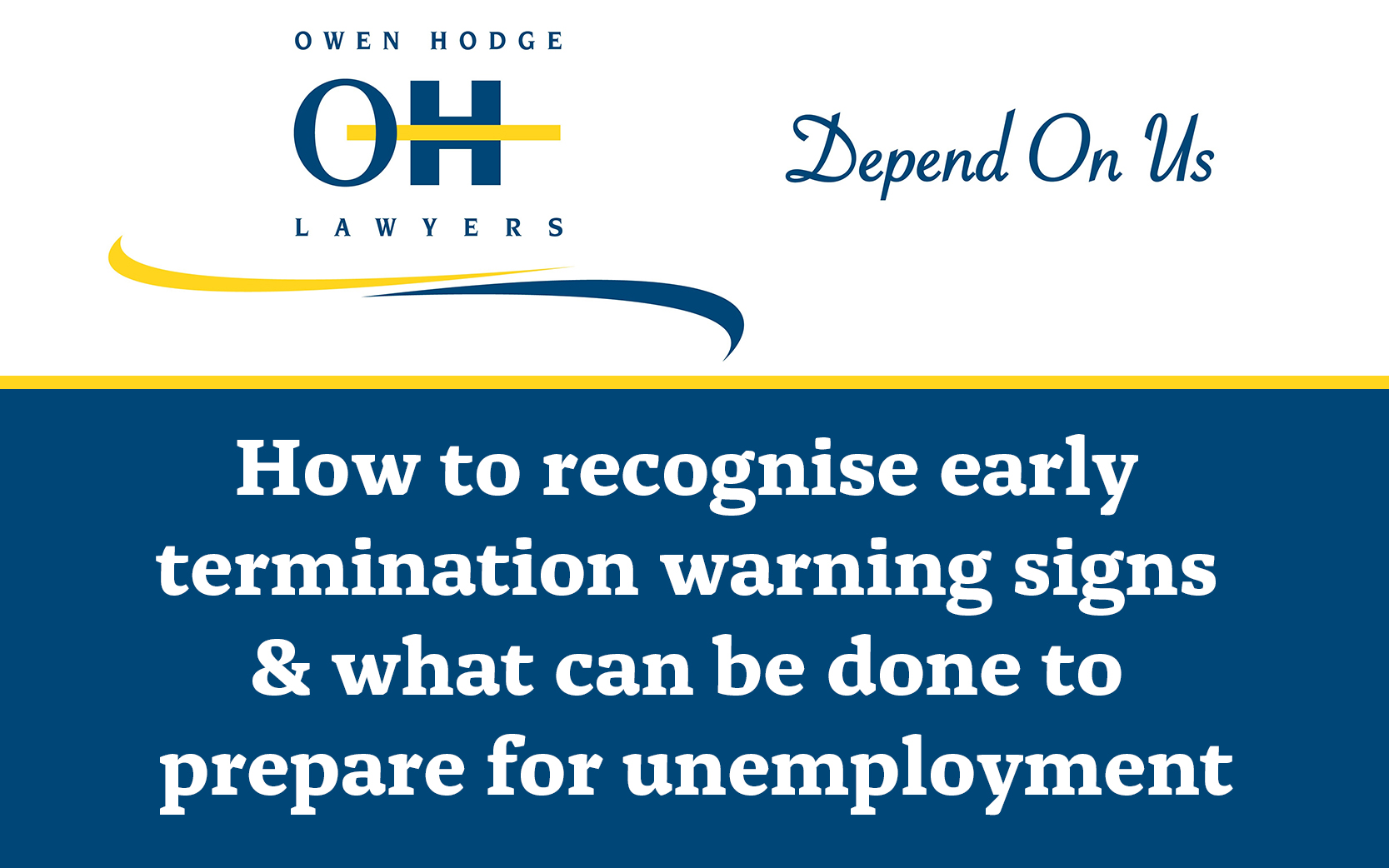
Being terminated from employment is a fear that has affected everyone at one time or another. Termination can be the result of a number of reasons such as job redundancy, bankruptcy, conflicts with other co-workers or disagreements over the quality of work. However, despite the reasons for dismissal, it is always important that employees are aware of the pre-termination signs and your rights as a terminated employee.
Pre-terminations signs can take many forms, so it is important to remain alert to the professional and social happenings in your workplace. The following issues or conflicts can be interpreted as signs that termination is being considered or imminent.
- You have been engaged in regular conflicts with coworkers
- There have been significant differences of options between you and your co-workers / superiors regarding your job performance
- Issues regarding the processes and procedures of how the work is to be performed are happening on a consistent basis
- Your superiors have requested to speak with you privately regarding your work performance
- You have received an initial written warning regarding issues pertaining to your work product or workplace conduct
- The first written warning has been followed up by a second and/or a third written warning
If you find any of the above issues occurring within your workplace, it is important for you to remain calm and take meticulous steps to protect your rights. As an employee, your rights are protected by the Fair Work Ombudsman Act and The Fair Work Commission.
![]()
Legally, employment can end for several reasons. However, when employment is terminated it must be done in accordance with the law. As such, the following procedures must occur:
- The dismissal must be fair;
a) it cannot be unreasonably harsh
b) it cannot be unjust
c) it cannot be the result of disingenuous redundancy - Being dismissed cannot be the result of discrimination; race, religion, marital status, sexual orientation, pregnancy, family leave, maternity leave or emergency volunteer service.
- Temporary absence from work due to illness or injury
- Participation in trade or industry business or politics
- Exercising any of your workplace rights ie: filing a complaint against the employer for unfair business practices, etc.
In addition, the employer must give the employee the proper notice of termination. Such notice must be given in accordance with the law. The employer may choose to dismiss the employee during the period of notice, however wages must still be paid during for the duration of the notice period.
The following notice periods are required by law are as follows:
- One Week – For employees of less than a year
- Two Weeks – For employees of 1-3 years
- Three Weeks – For employees of 3-5 years
- Four Weeks – For employees of 5 years or more
Finally, the employer must pay out any of the following:
- Outstanding wages or overtime not yet paid
- Any pay in lieu of working out the notice period
- Accrued leave
- The balance of any unused time off
- If the job was eliminated due to genuine redundancy, the balance of any redundancy
- payments or entitlements
While being terminated from your place of employment is one of the most stressful and upsetting experiences anyone can encounter, it can be made less so by being alert to your employment environment, being prepared in your response to your employer, being knowledgeable about your rights as an employee, and being willing to seek legal assistance if the need be. There are legal protections in place to assist any terminated employee in protecting their workplace rights and, as such, the terminated employee should avail themselves of all available legal assistance.
For further information or inquiries, please contact the offices of Owen Hodge Lawyers. At Owen Hodge, we are always happy to assist clients in understanding the full ramifications of any and all of your legal needs. Please feel free to call us at your earliest convenience to schedule a consultation at 1800 770 780.
